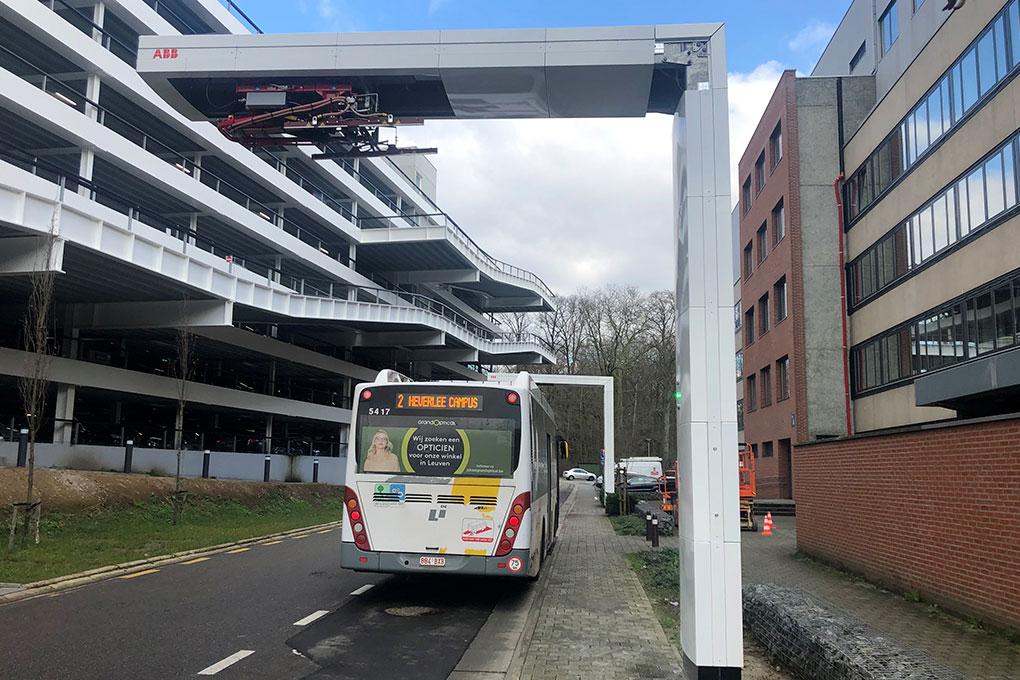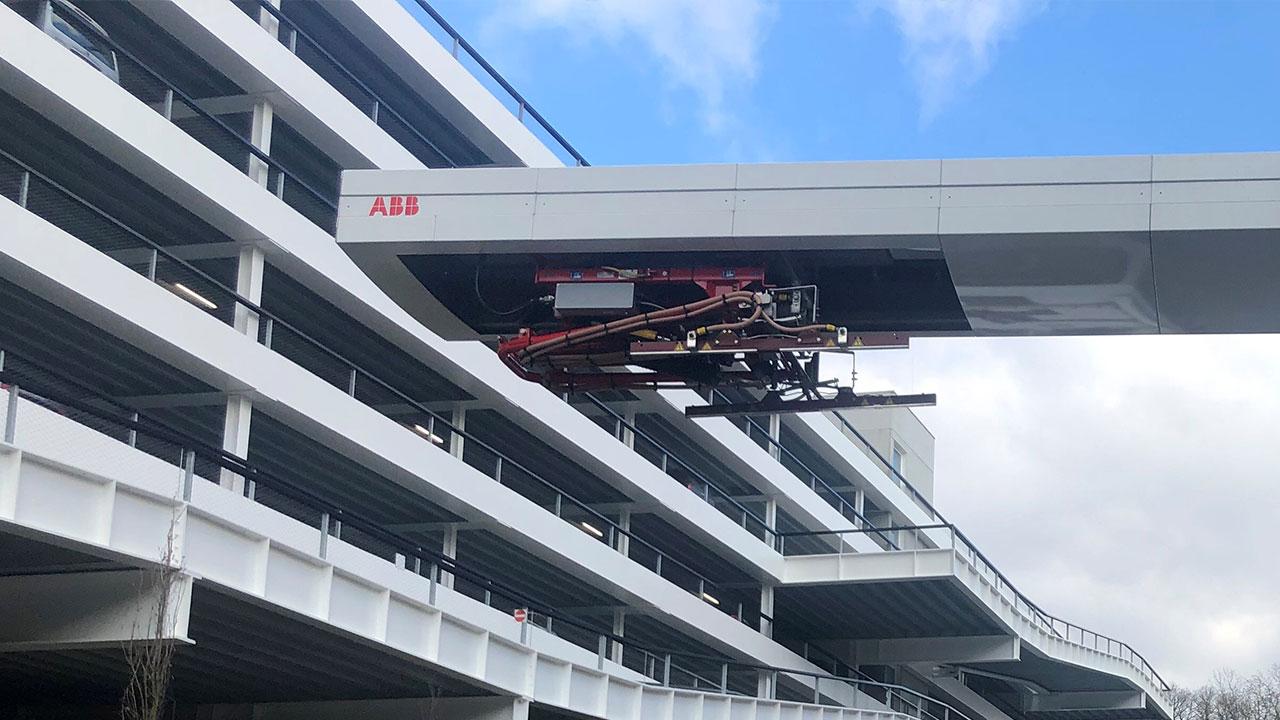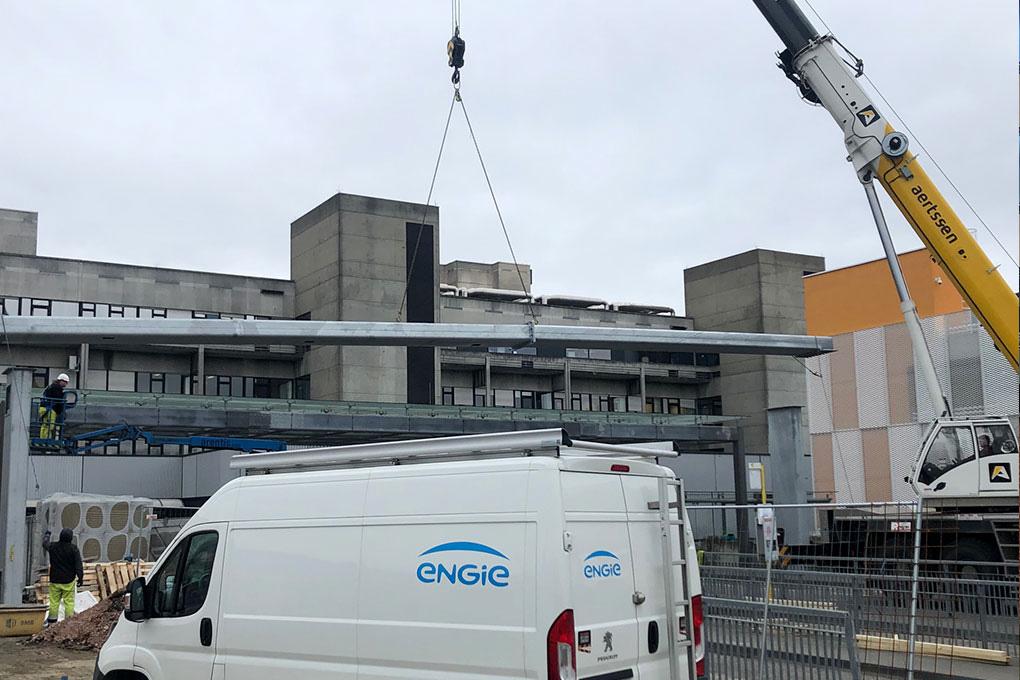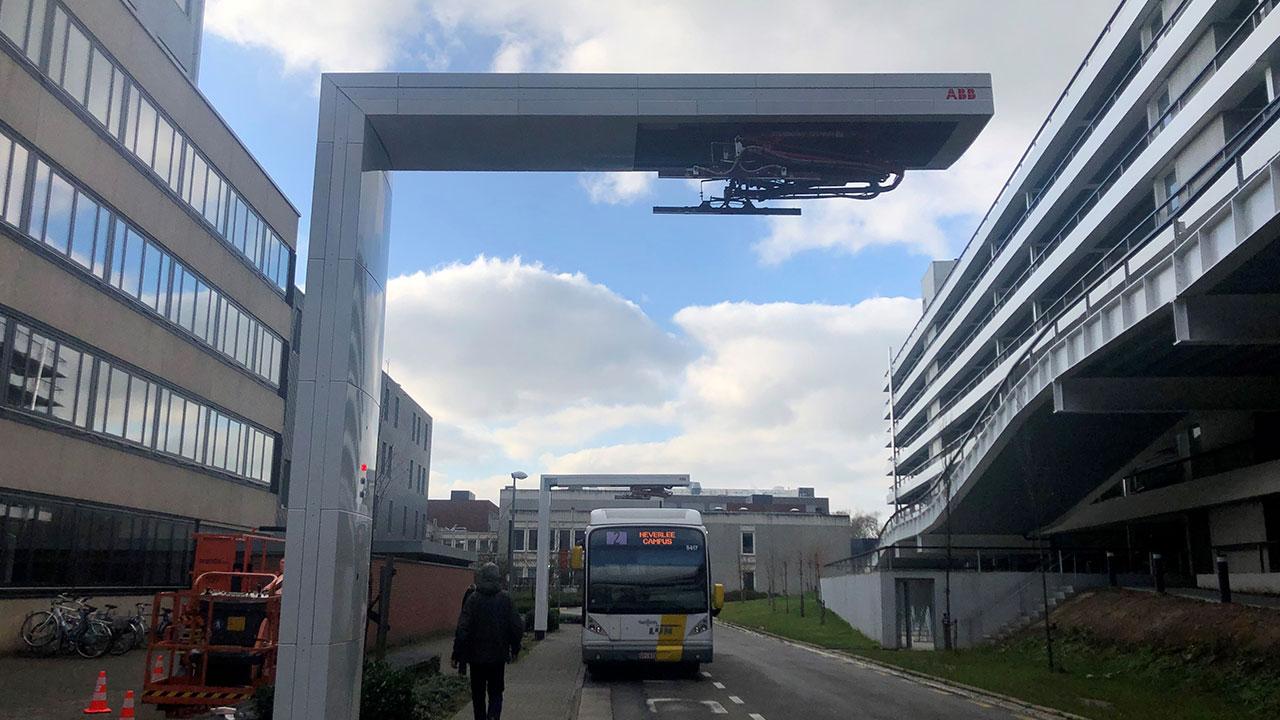Commissioned by ABB, EQUANS has equipped the city of Leuven with electrical charging infrastructure for De Lijn’s electric buses.
By 2025, the Flemish Government wants public transport in the city centres to be completely emission-free, and then the whole of Flanders by 2035. De Lijn’s first six electric buses have been running in Leuven, between Kessel-Lo and Heverlee, since September 2020. In order to supply these e-buses with electricity, EQUANS, acting as a subcontractor of the technology company ABB, installed electric charging stations in Leuven.
Switch to a fully electric bus fleet
Leuven is the first city in Flanders to participate in De Lijn’s pilot project, which is also being expanded to Antwerp and Ghent. With these pilot projects, De Lijn is preparing for the transition to a fully electric bus fleet in Flanders.


Charging infrastructure for fast and slow charging of e-buses
EQUANS installed the charging infrastructure for De Lijn’s e-buses at various locations throughout Leuven. The charging infrastructure is intended for the fast and slow charging of e-buses. For example, EQUANS equipped a bus stop with fast-charge infrastructure and De Lijn’s depot with slow-charge infrastructure. The electric buses will use the fast chargers at the bus stops during the day while the driver has a break, and the buses will be charged overnight using the slow chargers at the depots. A fast-charge station was built at Leuven’s Kapeldreef bus stop and a slow-charge installation was provided at the Leuven Noord depot, where the buses can charge overnight. De Lijn wants to use these pilot projects to test the different charging methods and include them in the training programme for bus drivers.
Charging infrastructure installation
As an ABB subcontractor, EQUANS has carried out the installation works of the charging infrastructure and the necessary provisions (concrete booths, LV signs, cabling works, etc.) to supply the charging infrastructure. Two fast-charge pantograph charging stations of 300 kW were installed at Leuven bus stops and six slow-charge stations of 50 kW at a De Lijn depot. The total capacity that EQUANS will install for the pilot projects is 1 MW.


Improved traffic flows and less CO2
EQUANS wants to help cities and towns in their major challenge to reduce CO2 emissions, improve traffic flows, and increase road safety. This project is fully in line with EQUANS’ strategy, which, thanks to its technical expertise in the infrastructure sector, is able to offer mobility solutions that contribute to reducing CO2 emissions and improving mobility in cities.
